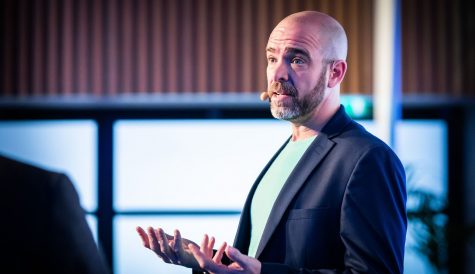
After more than 40 years of operation, DTVE is closing its doors and our website will no longer be updated daily. Thank you for all of your support.
EC backs net neutrality, removal of geo-blocking
New European Commission vice-president Andrus Ansip has backed “solid” and “clearly defined” net neutrality and called for geo-blocking restrictions in Europe to be scrapped.
In a speech to the European Parliament in Strasbourg Ansip – who is one of three European commissioners who has taken over from recently retired digital policy chief Neelie Kroes – said that geo-blocking based on location or residence “goes against the core principles of Europe’s single market.”
He also said that building trust and confidence in the online world is vital if a digital single market is to exist in Europe and function properly.
“Our citizens want the best the internet can offer, they want an internet that is safe and accessible to everybody. This is not a reality in Europe today,” said Ansip.
“There is even more work to do to achieve a truly connected digital single market. A market where every consumer is able to enjoy digital content and services – wherever they are in the EU, including government services.
“It means every company should be able to share and sell its wares to a market of 500 million, using seamless online channels.”
In terms of geo-blocking restrictions, Ansip said that work should centre around reforming and modernising copyright rules and “getting rid of unjustified curbs on transfer and access to digital assets.”
In 2015 the European Commission will present its strategy for a digital single market and prepare measures based on its assessment of “the most urgent obstacles to be removed.”
“The benefits of a digital single market are €260 billion a year, potentially more. Imagine ending those barriers, making this a benefit to Europe, not the cost of non-Europe. This is the jolt that our economy needs and the opportunity our citizens want,” said Ansip.
The comments came as the European Broadcasting Union (EBU) yesterday called on EU member states to launch negotiations as soon as possible with the European Parliament on net neutrality provisions.
In an open letter co-signed by the EBU last month, the union said that legislation on net neutrality “would provide certainty for providers of innovative online content, applications and services, enhance transparency for end-users and boost consumers trust in the internet”.
Neelie Kroes stepped down earlier this month, with her role divided up and three European Commissioners succeeding her: Ansip, vice president-designate for the Digital Single Market; Günther Oettinger, commissioner-designate for the Digital Economy and Society; and Jyrki Katainen, vice president-designate for jobs, growth, investment and competitiveness.



